
|
12th INTERNATIONAL SOFTWARE QUALITY WEEK (QW'99) 24-28 May 1999, San Jose / Silicon Valley, California USA INTERNATIONAL ADVISORY BOARD |

|
12th INTERNATIONAL SOFTWARE QUALITY WEEK (QW'99) 24-28 May 1999, San Jose / Silicon Valley, California USA INTERNATIONAL ADVISORY BOARD |
|
HomePage
| Mission
| Board
| Download: { Flyer,
Brochure }
| Send Brochure
Preview | Tour | REGISTER | PROGRAM | Abstracts | Biographies Sponsors | Exhibitors | Hotel | Car Rental | Bay Area | Kudos |
The 12th International Software Quality Week Technical Program is reviewed by a distinguished International Board of Advisors listed below.
Advisory Members are chosen for their expertise in software testing, software quality process, and software quality issues and generally for their contributions to the software quality field. Quality Week seeks a balance between industrial, government, vendor, and academic backgrounds. In view of the international aspect of the conference the Advisory Board includes members from many countries throughout the world.
All papers at QW99 are reviewed by a majority of the Advisory Board's members. Paper selections are based on the QW99 Advisory Board's technical content and presentation evaluation scores.
Updated 2 May 1999.
Here are brief biographical descriptions of
each QW'99 Advisory Board member.
Email access information and a hotlink to each members personal
home page is included where known.
Frank has more
than thirty years of software engineering experience with Johns Hopkins
University, Control Data Corporation, AT&T Bell Laboratories and the Institute
For Zero Defect Software. He is personally committed to advancing the state-
of-practice of software engineering worldwide. He has held various positions
in the IEEE software engineering standards effort: He was the founding chair
of the IEEE Software Reliability Engineering Committee, and is currently
leading the IEEE/CS Study Group for Quality Graded Software Component Source
Code Packages. The main theme in his professional life is the passionate
pursuit of the ideal of a software engineering profession that can deliver
optimum quality, on schedule, and at minimal cost.
Larry was an Executive Director of AT&T Bell Laboratories where he worked
for 35 years.
As a software project manager he successfully built, sold and deployed a
software system that automated the 100 million paper records telephone
companies used to keep track of telephone lines to people's homes. Through
his leadership new data base algorithms were discovered, implemented and
patented. He led the development of more than 10 projects ranging in size
from 50-400 people spanning 2-5 years of development bringing them in within
budget and on schedule.
As a technologist he invented the concepts of 'dynamic provisioning' and
'routing to intelligence' which are included in the seven patents he holds.
He saw the opportunities contained in research into software fault tolerance
and championed its commercialization. It is now used in 24 products
deployed in over 500 sites.
As a contributor to the profession he was recognized as a Fellow of the
IEEE, the ACM and Ball State University. He is a member of the Russian based
International Information Academy. He is a visiting associate of the Center
for Software Engineering at the University of Southern California.
Mr. Drake has personally measured and analyzed over 80,000,000 lines of Java,
C++, C, Ada, Fortran, PL/I, and Assembly code plus others. Over the past
several years, some very interesting patterns have emerged. The result
of all the analysis is a highly correlated set of measures that have been
developed into a streamlined set of code-level release criteria. This data is
then combined with defect density information derived from dynamic testing
data from each "phase" or milestone of the development life cycle as a feedback
loop for making informed business decisions to improve the
quality of the software over time via the process by which the development
project is delivered.
Mr. Drake has spoken at several international conferences and frequently conducts
interactive and facilitated educational and general interest seminars on the people,
process and technology sides of software development and enterprise-level information
management systems.
He considers himself a quality advocate and a digital archaeologist.
He supports the "weak-link" theory of software development and the use of software
entropy principles as a risk identifier for generating higher quality software-based
information technology systems.
He is also involved in Y2K contingency planning and related business enterprise and
mission continuity support.
He is currently focused on the development and use of product-level and reflected
process-level OO metrics for C++ and Java.
He is the principal author of a chapter on "Metrics Used for Object-Oriented Software
Quality" for a CRC Press Object Technology Handbook published in December of 1998.
In addition, Mr. Drake is the author of a theme article entitled: "Measuring Software
Quality: A Case Study" published in the November 1996 issue of IEEE Computer.
Mr. Drake is listed with the International Who's Who for Information Technology for 1999.
Mr. Drake is a member of IEEE and an affiliate member of the IEEE
Computer Society.
(tom.drake@coastalresearch.com)
As a technical consultant, Bill works with companies and organizations in
applying software reliability. While at AT&T Bell Laboratories, he has held
various positions including distinguished member of technical staff,
technical manager, technical consultant in software development
organizations. He was the team leader in defining a practice for Software
Reliability Engineering within AT&T. He has consulted with organizations
throughout AT&T on both software reliability and software process engineering.
Bill is a senior member of IEEE, and members of SIAM and ICCA. He received
a PhD in Applied Mathematics from the California Institute of Technology
and an Engineer's Degree from the Colorado School of Mines.
Dr. Frank Ackerman, Consultant, USA
Mr. Tim Anderson, Segue, USA
Mr. Larry Apfelbaum, Teradyne, USA
Mr. Walter Baziuk, Nortel, Canada (Technology Track Chair)
Dr. Boris Beizer, Analysis, USA (QuickStart Track Chair)
Mr. William Bently Mu_Research, USA (Applications Track Chair)
Mr. Larry Bernstein Consultant, USA
Dr. Antonia Bertolino IEI/CNR, Italy
Mr. Robert Binder, RBSC Corporation, USA
Dr. Robert Birss, PricewaterhouseCoopers, USA
Mr. Jack Bishop, SVN, USA
Ms. Rita Bral, SR/Institute, USA (QW'99 Conference Director)
Prof. Lori Clarke, UMass, USA
Mr. Thomas Drake, CRTI, USA (Tools & Solutions Track Chair)
Mr. Walt Ellis, Software Process & Metrics, USA
Dr. William Everett, SPRE, USA
Mr. Danny R. Faught, Hewlett-Packard, USA (Birds-Of-A-Feather Track Co-Chair)
Prof. Dick Hamlet, Portland State, USA
Prof. William Howden, University of California, San Diego, USA
Mr. Neil Hunt, Rational, USA
Dr. Andre Kok, CMG, Netherlands (Management Track Chair)
Mr. Brian Marick, RST Corporation, USA (Birds-Of-A-Feather Track Co-Chair)
Dr. Edward Miller, Software Research, Inc., USA (QW'99 Program Chair)
Dr. John D. Musa, Independent Consultant, USA
Ms. Emilia Peciola, Ericsson, Italy
Mr. Martin Pol, IQUIP, Netherlands (Vendor Technical Track Chair)
Mr. Rob Schultz, Motorola, USA
Dr. Antonio Serra, Quality Labs, Italy
Mr. Keith Stobie, BEA Systems, USA
Mr. Otto Vinter, Brüel & Kjaer, Denmark
Dr. Tony Wasserman, Software Methods & Tools, USA
Prof. Lee White, CWRU, USA
Mr. Hakan Wickberg, Volvo, Sweden
Dr. Frank Ackerman, Independent Consultant USA
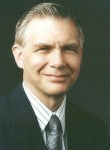
(FAckerman@aol.com)
(TOP OF PAGE)
Mr. Tim Anderson, Segue, USA
Tim Anderson has been with Segue Software since 1995. Previously, he
worked as a software architect at Lotus Development, Interleaf, and
elsewhere, and spent several years on the research staff at MIT's
Laboratory for
Computer Science. He received S.B. ('75) and S.M. ('77) degrees in computer
science from MIT, where he also co-authored the computer game "Zork."
(taa@segue.com)
(TOP OF PAGE)
Mr. Larry Apfelbaum, Teradyne, USA
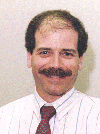
(TOP OF PAGE)
Dr. Boris Beizer, Software Engineer, Analysis USA

(bbeizer@acm.org.
(TOP OF PAGE)
Mr. Walter Baziuk, Nortel Canada
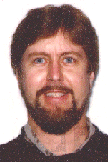
(baziuk@nortelnetworks.com.
(TOP OF PAGE)
Mr. William Bently, Mu_Research, USA

(wbently@fourway.net)
(TOP OF PAGE)
Mr. Larry Bernstein, Consultant USA

(lbernstein@worldnet.att.net.
(TOP OF PAGE)
Dr. Antonia Bertolino, CNR-IEI, ITALY

(bertolino@iei.pi.cnr.it)
(TOP OF PAGE)
Mr. Robert Binder, RBSC, Inc., USA

(rbinder@rbsc.com)
(TOP OF PAGE)
Dr. Robert Birss, PriceWaterhouseCoopers, USA
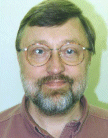
(robert.birss@us.pwcglobal.com)
(TOP OF PAGE)
Mr. Jack Bishop, Silicon Valley Networks, USA
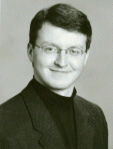
(jack@svnetworks.com)
(TOP OF PAGE)
Ms. Rita Bral, SR/Institute, USA
QW'99 Conference Director
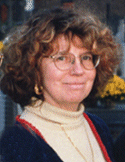
(bral@sr-corp.com)
(TOP OF PAGE)
Prof. Lori Clarke, UMass, USA

(clarke@cs.umass.edu)
(TOP OF PAGE)
Mr. Thomas Drake, CRTI, USA

(TOP OF PAGE)
Mr. Walt Ellis, Software Process & Metrics, USA

(waltelli@erols.com)
(TOP OF PAGE)
Dr. William Everett, SPRE, Inc., USA
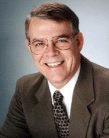
(w.w.everett@computer.org)
( Click here for Dr. Everett's Home Page)
(TOP OF PAGE)
Mr. Danny R. Faught, Hewlett-Packard, USA

(faught@asqnet.org)
(TOP OF PAGE)
Prof. Richard Hamlet, Portland State University, USA

(Click here for Prof. Hamlet's Home Page)
(hamlet@cs.pdx.edu)
(TOP OF PAGE)
Prof. William Howden, University of California, USA
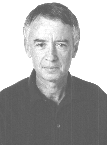
(howden@cs.ucsd.edu)
(TOP OF PAGE)
Mr. Neil Hunt, Rational, USA
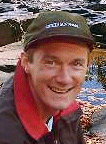
Frustration with the tools available to help achieve quality in large software applications led to his joining Pure Software in 1992, to help build better software quality tools. He was the architect for three generations of Purify, a run-time error detection tool, and led the teams responsible for PureCoverage, a code-coverage tool, and Quantify, a performance profiling tool.
Neil recently joined Rational Software's SQA team, leading the functional test
engineering group, which is responsible for developing SQA Robot, SQA Team
Test, and Visual Test.
(nhunt@rational.com)
(TOP OF PAGE)
Dr. Andre Kok studied Computer Science at the Free University (VU) in Amsterdam. After completion of his study, he started working as a researcher at the Artificial Intelligence Group of the VU, and later at the University of Amsterdam (UvA). In this period he publicized a dozen papers and won several awards. In 1990, he got his Ph.D. at the UvA. After this, he worked as a system developer for several companies. He joined CMG in 1996 as a management consultant with a special focus on testing methods. He supported the introduction of TestFrame at a large bank, where his tasks included test management, test consultancy, sales, recruitment and project auditing. Currently, Andre coordinates product development at the TestFrame Research Centre of CMG.
(andre.kok@cmg.nl)
(TOP OF PAGE)

Brian Marick worked for eleven years as a tester, developer, and line manager, mostly on operating systems and compilers. Joint research at the University of Illinois led to internal consulting and then, in 1992, his own consulting business, Testing Foundations. Because practitioners are justifiably suspicious of those who talk about software development but never actually do any, he tries to spend half his time building, testing, and maintaining tools, some freely available. Marick is the author of the widely acclaimed The Craft of Software Testing (Prentice Hall, 1995).
(Brian Marick's Home Page)
(marick@testing.com)
(TOP OF PAGE)
Dr. Edward Miller is President of Software Research, Inc., San Francisco, California, where he has been involved with software test tools development and software engineering quality questions. Dr. Miller has worked in the software quality management field for 25 years in a variety of capacities, and has been involved in the development of families of automated software and analysis support tools. He was chairman of the 1985 1st International Conference on Computer Workstations, and has participated in IEEE conference organizing activities for many years. He is the author of Software Testing and Validation Techniques, an IEEE Computer Society Press tutorial text. Dr. Miller received his Ph.D. (Electrical Engineering) degree from the University of Maryland, an M.S. (Applied Mathematics) degree from the University of Colorado, and a BSEE from Iowa State University.
(miller@sr-corp.com)
(TOP OF PAGE)
John D. Musa is an independent consultant. He gives courses in software reliability engineering on a world wide basis. He has extensive experience as a software developer and manager. He has 21 years experience in software reliability engineering as one of the creators and leaders of the field, and was elected Fellow of the IEEE for his contributions. He has published over 80 papers and is principal author of the widely acclaimed pioneering book "Software Reliability: Measurement, Prediction, Application." He organized and led the transfer of software reliability engineering into practice within AT&T.
(John Musa's Home Page)
(j.musa@ieee.org)
(TOP OF PAGE)
Emilia Peciola graduated in Computer Science at the University of Pisa. She has been working in Ericsson Telecomunicazioni in Rome since 1985 involved in software development. Since 1996 she has been managing, under the R&D Division, the Department of System Software development for new telecommunications systems. Within the R&D Division she is also Chair of the Software Technology Committee having the responsibility for monitoring and addressing innovative solutions. Her main research interests are in the areas of Sotware Testing, Software Reliability and Software Architecture.
(E.Peciola@rd.tei.ericsson.se)
(TOP OF PAGE)
Martin Pol, with more than 25 years of experience in information technology, has worked for IQUIP Informatica B.V. in The Netherlands since 1991, within Software Control Testen, a department dedicated to testing only. Since 1997 Martin Pol is also working in Belgium, where his services are available through GiTek Software n.v. in Antwerp. With exceptional insight and experience in practical testing issues, Martin is a respected speaker at conferences and training sessions throughout Europe and in the USA. He is responsible for many publications on structured testing in Dutch, English and French. He was involved in the development of the structured testing approach TMap. Under his management TMap became the Dutch and Belgian testing standard. Now the approach is used in more than 200 companies in the Benelux and other parts of Europe. Martin Pol is co-author of three Dutch books on TMap and Test Process Improvement, and of the English translations of TMap and TPI, that will be available in the autumn of 1998. As Manager Research & Development he is responsible for the innovation of the testing methods of Software Control Testen and GiTek. Martin Pol was Programme Chair of the EuroSTAR conference in 1996 and 1997 and is Chairman of the Dutch Special Interest Group in Software Testing, TestNet.
(polmarti@iquip.nl)
(TOP OF PAGE)
Robert M. Schultz is a Software Testing Technologist at Motorola's Automotive, Energy, and Controls Group. He is actively involved in the improvement of software testing process and software testing technology within this business group. In addition to his focus on product software, he also works with manufacturing test groups and enterprise integration groups to improve software testing in those areas. Rob has been in the software testing and software quality field since 1989, and has been in the software industry for over 10 years. He received the Bachelor of Science in Computer Science degree from Valparaiso University.
(schultz@cig.mot.com)
(TOP OF PAGE)
Dr. Antonio Serra received his degree in electronic engineering from the University of Torino, Italy. Since 1990 he has been President of ASIC S.r.l., Torino, where he has been involved with software testing tools development. He is a consultant in software quality and software engineering for many important companies, especially in military and space applications. His main research activity is in graphic pattern recognition, software analysis and software testing tools. (serra@qualitylab.com)
(TOP OF PAGE)
Keith Stobie is Quality Assurance and Test Architect at BEA Systems, Inc. Keith directs QA and Test process and strategy. He plans and designs tests for BEA's Object-Oriented Transaction Processing Manager. Previously, Keith was Test Architect at Informix designing tests for the Extended Parallel Server product and Manager of Quality and Process Improvement. Keith held many QA and test roles at Tandem Computers. With over 18 years in the field, Keith is a leader in testing methodology, tools technology, and quality process. He is a qualified instructor in Systematic Software Testing and in software inspections. Keith is active in the software task group of of ASQ, participant in IEEE 2003 and 2003.2 standards on test methods, published several articles and presented at many quality and testing conferences. Keith is an ASQ Certified Software Quality Engineer with a BS from Cornell University.
(Keith.Stobie@BEAsys.com)
(TOP OF PAGE)
Otto Vinter received his Masters Degree in Computer Science from the Danish Technical University in 1968. He has given public seminars, been associate teacher for BSc. level education in Computer Science, and is a active participant in Danish software-knowledge exchange groups. He is currently responsible for CEC sponsored projects at Brüel & Kjaer to improve the development process. In this position, he has also been active in defining software engineering standards, procedures, and methods to be employed at Brüel & Kjaer. He has been the driving force in the company's transition from procedural programming to Object-Oriented development. He has managed software development projects for 25+ years; with Brüel & Kjaer from 1986, before that with the Danish branch of Control Data Corporation, and with Regnecentralen.
(Dr. Otto Vinter's Home Page)
(ovinter@bk.dk)
(TOP OF PAGE)
Anthony I. Wasserman is President of Software Methods & Tools, which provides software development products and services. He was previously Founder and Chairman of IDE, which built the Software through Pictures modeling environment. Prior to that, Dr. Wasserman was a University of California professor, and has been a Visiting Professor at the Vrije Universiteit, Amsterdam, and the University of Geneva. Tony has made numerous contributions to software engineering research, including pioneering work in rapid prototyping of interactive information systems and software engineering environments. He has a Ph.D. in Computer Sciences from the University of Wisconsin - Madison, USA. He is among the few people to be elected as a Fellow of both the Association for Computing and the Institute of Electrical and Electronic Engineering.
(tonyw@methods-tools.com)
(TOP OF PAGE)
(Biography to be supplied)
(leew@alpha.ces.cwru.edu)
(TOP OF PAGE)
(Biography to be supplied)
(it1.wickberg@memo.volvo.se)
(TOP OF PAGE)